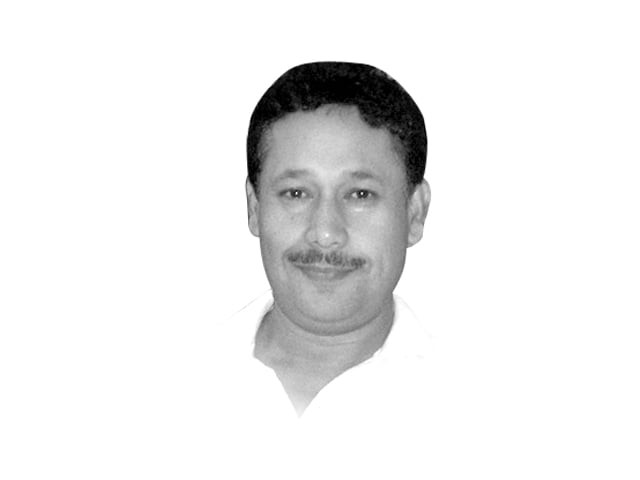Imran Khan’s hollow apology on Balochistan
The fact is that Balochistan wanted to hear the PTI leadership clearly acknowledge that Balochistan is suffering.

Following Pervez Musharraf and Asif Ali Zardari’s footsteps, the PTI’s Imran Khan has also publicly apologised to the people of Balochistan. However, he did this without mentioning the military’s excessive and inhuman policies, human rights violations, political assassinations and the ‘kill and dump’ policy of moderate Baloch political activists and the systematic subjugation of the Baloch people.
In a carefully-crafted apology, ignoring the ongoing human rights violations, the PTI chairman spoke in the past tense. He said human rights abuses had been “committed” and the people of the province had been “treated” (as if it was in the past) like those of a colony as happened in the case of the people of East Pakistan.
This careful selection of words, together with no mention of the security agencies and their dirty game in Balochistan, raises doubts about the PTI’s confidence and ability to truly ensure that, if it comes to power, it will make law-enforcement agencies follow the rule of law.
The fact is that the people of Balochistan wanted to hear the PTI leadership clearly acknowledge that Balochistan is suffering, that its people’s fundamental rights are being violated, that enforced disappearances and the policy of ‘kill and dump’ are all still going on like before.
The Baloch population wants the PTI to confront the military’s discriminatory policies politically and legally by moving a petition in the Supreme Court and by calling for a nationwide strike in solidarity of Baloch victims.
When the PPP came into power, President Asif Ali Zardari made an apology for Musharraf’s sordid actions. He also announced that the new PPP-led government would call an all-parties conference to address the province’s long-entrenched problems, while also promising to form a truth and reconciliation commission to investigate allegations of human rights abuses.
However, soon the people of the province had to suffer the killing of three more eminent Baloch nationalists and a series of target killing of top Baloch leaders, including former senator Habib Jalib Baloch, Professor Saba Dashtyari, Maula Bux Dashti, Mir Noordin Mengal, Abdul Salam Baloch, Mir Jumma Khan Raisani and Mir Liaquat Mengal, as well as hundreds of political activists.
The PPP may have apologised but it has quite clearly been unable to confront the ‘powerful elements’ who have turned Balochistan into a killing field.
I would, in fact, argue that by separating action from responsibility, political apologies can make it more difficult to take the steps necessary to enforce real change. Saying sorry for committed crimes, killings, exploitation and human rights violations, for instance, does not address the causes of the Balochistan conflict and the problems facing the Baloch people in Pakistan.
It should also be noted that many of the new entrants into the PTI — the so-called ‘electables’ — are the ones who were part of the Musharraf regime and saw nothing wrong in the atrocities that it committed. There is no guarantee that these same elements will not overly influence the PTI’s policies if they rise to power.
The people of Balochistan don’t need apologies, what they need is a clear and unambiguous stand against the ongoing human rights violations in the province. They want a government that will take the security forces to task and make them stop their current policy of targeting moderate Baloch politicians, intellectuals, students and dissidents. There should also be a clear road map for peace and conflict resolution in the province, one that addresses the ethnic composition, security structure, autonomy issues, the issue of ownership of resources and having in place a pro-people socio-economic development plan.
Published in The Express Tribune, December 29th, 2011.














COMMENTS
Comments are moderated and generally will be posted if they are on-topic and not abusive.
For more information, please see our Comments FAQ